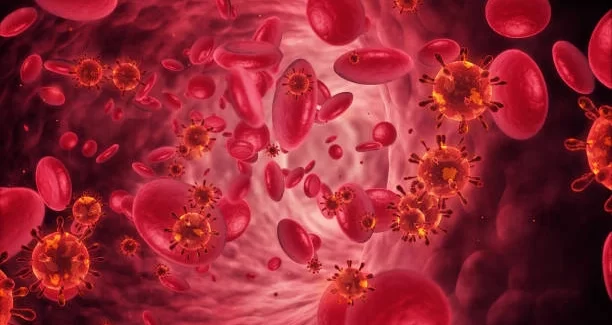Types of anxiety disorder, symptoms, causes & treatments to know!

Posted Date: February 25th, 2023
Are you struggling to cope with persistent feelings of fear and worry? You’re not alone: anxiety disorders are one of the world’s most common mental health issues, impacting millions of people of all ages. Anxiety comes in many forms, from generalized anxiety disorder (GAD) to social anxiety disorder, panic attacks and much more. In this blog post, we’ll take an in-depth look into what exactly is causing your anxious thoughts and feelings. We’ll also explore some potential treatment methods for managing your symptoms so that you can live a happier and healthier life. So, let’s get started without further delay!
What are anxiety disorder?
Anxiety is a mental disorder that causes people to experience excessive fear and worry. It can manifest as physical symptoms such as sweating, trembling, difficulty breathing, nausea and chest pain. Anxiety can also lead to negative thoughts and feelings that are difficult to control. People might feel on edge, overwhelmed, powerless and scared. Anxiety can be a normal reaction to certain stressors, but it’s considered an anxiety disorder when it becomes intense and difficult to manage.
Types of Anxiety Disorders:
As we said above, anxiety comes in many forms. The most common types of an anxiety disorder include:
-
General Anxiety Disorder (GAD):
This is the most common type of anxiety disorder, characterized by persistent, uncontrollable worry and fears about everyday life events or activities. It can cause physical symptoms such as headaches, restlessness and difficulty concentrating. According to the Diagnostic and Statistical Manual of Mental Disorders, GAD affects an estimated 6.8 million adults in the United States.
-
Social Anxiety Disorder:
This type of anxiety disorder is characterized by a fear of being judged or scrutinized by others in social situations and can lead to intense feelings of embarrassment or shame. People with social anxiety disorder may have difficulty interacting with others and may avoid certain activities, such as public speaking or social gatherings.
-
Panic Disorder:
This type of anxiety is characterized by sudden and frequent panic attacks that can lead to a fear of losing control or dying. People with this disorder often worry about when and where the next panic attack will occur and they may develop a fear of specific situations or locations.
-
Post-traumatic Stress Disorder (PTSD):
This type of anxiety disorder can develop after someone has gone through a traumatic event such as war, natural disaster, sexual assault or abuse. People with PTSD often have intrusive memories or nightmares, difficulty sleeping and an exaggerated sense of danger.
-
Obsessive-Compulsive Disorder (OCD):
This type of anxiety disorder is characterized by obsessive thoughts or behaviors that are difficult to control. People with OCD may fear germs or dirt, experience intrusive thoughts or need to check and recheck things multiple times. However it is important to note that OCD can also lead to positive behaviors, such as neatness and organization.
-
Specific Phobias:
Intense fear of specific objects or situations characterizes this type of anxiety disorder. The most common phobias are fear of heights (acrophobia) and a fear of spiders (arachnophobia). Other phobias may include a fear of flying, closed spaces and needles. However, phobias can also be more complex, such as a fear of social situations or public speaking.
-
Separation Anxiety Disorder:
This type of anxiety disorder is characterized by intense fear and worry about being away from home or separated from a loved one. Children with separation anxiety may become distressed when away from their parents, leading to difficulty sleeping, nightmares or stomachaches.
-
Chronic Stress:
Chronic stress is a type of anxiety disorder that involves ongoing feelings of worry, fear or dread for an extended period of time. It can result from long-term issues such as money worries, health concerns or relationship problems. People with chronic stress often feel overwhelmed, exhausted and unable to cope.
It’s important to note that anxiety disorders can manifest differently in different individuals. Some people may experience physical symptoms such as fatigue, headaches or difficulty breathing, while others may have emotional or behavioral symptoms such as depression, irritability and trouble concentrating.
Symptoms of anxiety disorders:
Anxiety disorders can have a variety of symptoms, including:
-
Persistent and excessive worry or fear: Worrying more than necessary or worrying about things out of control. When this worry becomes overwhelming and interferes with everyday life it may indicate an anxiety disorder.
-
Restlessness or irritability: Feeling on edge, struggling to relax and having difficulty concentrating or staying still.
-
Sleep problems: Difficulty falling asleep or staying asleep, waking up frequently throughout the night or feeling overly tired during the day.
-
Physical symptoms: Feeling tense and jumpy, shortness of breath, heart palpitations, sweating or nausea.
-
Avoiding certain situations: Trying to avoid places and activities that cause anxiety or fear.
-
Intense worry about future events: Anticipating the worst-case scenario in any given situation and worrying excessively about what might happen.
-
Trouble concentrating: Feeling distracted, dazed and unable to focus on tasks or conversations. This can be due to racing thoughts, intrusive worries and difficulty controlling one’s attention.
-
Panic attacks: A sudden episode of intense fear or terror that can range from feelings of discomfort to a full-blown panic attack with rapid heart rate, shortness of breath, dizziness and shaking.
-
Compulsive behavior: Engaging in repetitive behaviors such as excessive handwashing or checking behaviors to reduce anxiety.
-
Social withdrawal: Withdrawing from activities, events or conversations to avoid potential triggers of anxiety.
-
Loss of interest: Having a decreased interest in activities that had previously been enjoyable or meaningful.
You must speak to your doctor if you are experiencing any of these symptoms. They can help assess and diagnose the situation and provide appropriate treatment options. With the proper help and support, anxiety disorders can be managed successfully.
What causes anxiety disorders?
Anxiety disorders are a group of mental illnesses characterized by persistent and excessive worry and fear that can interfere with daily functioning. The main causes of anxiety disorders include:
-
Genetic Factors: Anxiety disorders can run in families and some studies have suggested that a person’s risk for developing an anxiety disorder is higher if family members have had similar problems.
-
Brain Chemistry: Neurotransmitters are chemicals in the brain that act as messengers between nerve cells and neurotransmitter imbalances can affect moods and emotions.
-
Environmental Factors: Events such as experiencing a traumatic event, childhood abuse and neglect or other stressful life experiences can increase the risk of developing an anxiety disorder.
-
Physical Health Conditions: Some physical health conditions can produce symptoms that mimic those of anxiety disorders, making it difficult to distinguish between them.
-
Substance Abuse: Withdrawal from drugs, alcohol or caffeine can cause symptoms similar to those of an anxiety disorder.
-
Stress: Chronic or long-term stress can lead to a state of increased anxiety. However it’s important to remember that anxiety is a normal and adaptive response to stress.
These are some of the possible causes of anxiety disorders and it is important to talk to your doctor if you think you might be suffering from an anxiety disorder. Your doctor can help diagnose the cause and recommend treatment options so that you can start feeling better.
How to deal with Anxiety disorders?
The treatment of an anxiety disorder is highly individualized and will depend on the type of disorder and severity of symptoms. Here are some of the most common treatment approaches:
-
Psychotherapy: Cognitive-behavioral therapy (CBT), which focuses on changing one’s thoughts and behaviors, is especially helpful in treating anxiety disorders. Other forms of psychotherapy may also be used, such as acceptance and commitment therapy (ACT) or interpersonal therapy.
-
Medication: Certain medications, such as selective serotonin reuptake inhibitors (SSRIs), can help reduce symptoms of anxiety disorders. A psychiatrist usually prescribes these medications in combination with psychotherapy.
-
Relaxation techniques: Relaxation techniques such as deep breathing, progressive muscle relaxation, mindfulness meditation, yoga and tai chi can help reduce the physical symptoms of anxiety. However it is important to remember that relaxation techniques are not a substitute for psychotherapy or medication.
-
Lifestyle changes: Making lifestyle changes can also help reduce anxiety. Eating healthy, exercising regularly and getting enough sleep can reduce stress levels and improve mental health. In fact, research has shown that regular exercise can be as effective as medication in treating mild to moderate anxiety.
-
Support groups: Joining a support group can also help reduce anxiety. A support group provides an opportunity to talk to people who understand, learn from others’ experiences and gain reassurance that you are not alone in what you are going through.
-
Professional help: If anxiety symptoms persist or worsen despite self-help and lifestyle changes it is important to seek professional help. A mental health professional can assess the types of treatment that will be most effective for you.
Anxiety disorders are highly treatable with the right combination of treatments and support. With proper care and support, people who have an anxiety disorder can learn to manage the condition and lead a happier healthier life.
Are there any home remedies to deal with anxiety?
Furthermore, some home remedies may help reduce anxiety symptoms.
-
Regular exercise can help release endorphins, hormones that can reduce stress and improve mood.
-
Eating a balanced diet can also help to reduce stress levels and improve mental health. Foods rich in vitamins B6 and B12, as well as omega-3 fatty acids, may help to reduce anxiety symptoms.
-
Getting enough sleep is important for managing stress and improving mental health. Make sure to get at least seven to eight hours of restful sleep each night.
-
Taking time out for relaxation can also reduce stress levels. Techniques such as yoga, deep breathing exercises, meditation, tai chi and mindfulness can all help reduce anxiety symptoms.
-
Talking to friends or family members about your feelings helps you better understand them and find solutions to reduce stress.
-
It’s also important to have a positive support network to turn to during difficult times.
-
Herbal supplements such as lavender, chamomile and kava may help reduce anxiety symptoms. However it’s important to discuss the use of any supplement with your doctor before taking it.
-
Reducing caffeine intake may also help reduce anxiety symptoms. Caffeinated beverages such as coffee, tea and energy drinks can increase stress levels.
-
Lastly, engaging in activities that bring joy and peace can help you feel calmer. Examples include listening to music, reading a book or walking.
Although these home remedies may assist with anxiety symptoms, speaking to a doctor is important if the symptoms persist. They will be able to provide the best advice tailored to your needs.
QUES 1: Can anxiety cause high blood pressure?
ANS: Yes, anxiety can cause high blood pressure. Anxiety is a state of inner turmoil that can manifest in physical symptoms. It causes the body to release hormones such as cortisol and adrenaline, which increase heart rate and constrict blood vessels leading to elevated blood pressure levels. This heightened state of arousal typically results in people experiencing shortness of breath, chest tightness or pain, tension headaches and nausea – all of which are associated with high blood pressure.
Long-term exposure to stress hormones also changes the autonomic nervous system, increasing the risk for chronic hypertension even after anxiety has waned. In addition to lifestyle changes (such as diet and exercise), several treatments are available for managing anxiety-related high blood pressure, including counseling/therapy, relaxation techniques such as yoga or meditation and prescription medications like antidepressants or beta blockers.
QUES 2: Does anxiety cause chest pain?
ANS: Yes, anxiety can cause chest pain. It’s estimated that up to 17 million people in the United States suffer from severe chest pain due to anxiety. Various physiological, psychological and environmental factors cause anxiety-related chest pain. Physiologically, during periods of high stress and tension, the body enters into a fight-or-flight response which constricts blood vessels, restricts oxygen supply and limits blood flow to various parts of your body, including the heart and lungs; this often results in chest pain or tightness known as “anxiety chest pain”. Psychologically, anxiety can lead to an increase in worry and fear that causes a physical reaction such as muscle tension which further contributes to anxious physical symptoms like chest discomfort or difficulty breathing. Finally, environmental triggers such as seeing something distressing or hearing bad news can also cause chest pains from increased levels of adrenaline released into the bloodstream when stressed out.
QUES 3: Can anxiety cause nausea?
ANS: Yes, anxiety can cause nausea. Nausea is a common symptom of physical and mental health conditions such as depression, anxiety or stress. Anxiety-induced nausea can be caused by various factors, including fear, anticipation or physiological changes resulting from high levels of stress hormones like cortisol and adrenaline. It’s important to note that while everyone experiences some degree of anxiousness at times, if chronic feelings of worry and fear are present it could lead to more intense symptoms, including severe abdominal distress or vomiting. To combat anxiety-induced nausea it’s important to practice relaxation techniques such as deep breathing exercises or progressive muscle relaxation which can help reduce the physical symptoms caused by an underlying anxiety disorder.
QUES 4: Can anxiety be cured?
ANS: Yes, anxiety can be cured. While it may not be eliminated, there are a variety of treatments and strategies that can help reduce the symptoms associated with anxiety. Cognitive-behavioral therapy (CBT) is one of the most effective forms of treatment for managing anxiety since it focuses on identifying unhealthy thought patterns, challenges negative beliefs and replaces them with more positive ones. Medication such as selective serotonin reuptake inhibitors (SSRIs) or benzodiazepines may also prove helpful in reducing symptoms and improving overall functioning. In addition to professional treatment options, lifestyle changes like eating a healthy diet, getting enough sleep each night, exercising regularly and practicing relaxation techniques can help reduce stress and anxiety.
The TakeAway:
Anxiety is a normal part of life. But for some people it can be much more than that. People with anxiety disorders often have symptoms that are out of proportion to their situation. And they may feel like they’re constantly under stress or threat, even when there’s no danger. Talk to your doctor or a mental health professional if you have an anxiety disorder. They can help you figure out what’s happening and how to improve. We hope this article was helpful; remember that anxiety can be managed and cured. With the right treatment and lifestyle changes, you can learn to manage your anxiety symptoms and live healthier lives.
Related Posts
Dr. Emily Carter is a seasoned health writer and wellness advocate at Healths News Today. With over a decade of experience in the healthcare industry, she specializes in translating complex medical information into easy-to-understand content that empowers readers to make informed decisions about their health.








